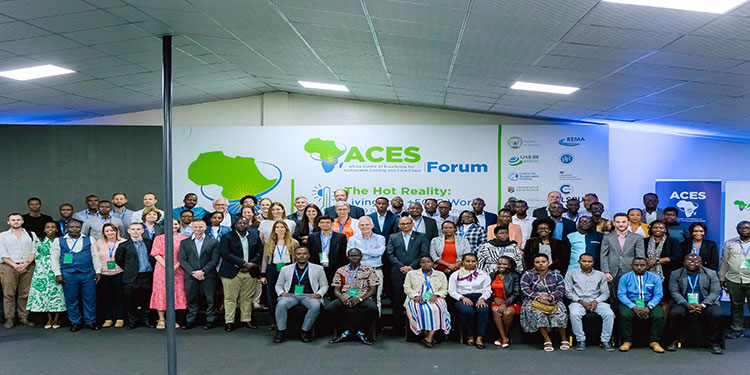
The Rwandan government has officially unveiled the new African Centre of Excellence for Environmental Cooling and Cold Chain (ACES), which will be hosted in Rwanda by the University of Rwanda. At the conception meeting, a high-level cross-departmental team was formed to oversee the Centre’s development.
The official endorsement of planned activities has accelerated progress in establishing the centre in partnership with the primary technical partners, the University of Birmingham and the UN Environment Programme’s United for Efficiency (UNEP U4E). ACES will assist farmers in getting their crops to market quickly and effectively, decreasing food waste, increasing earnings and creating jobs. It will also strive to enhance cold-chains for vaccines and health.
ACES brings together multi-disciplinary UK and in-country expertise, as well as commercial partners, to design and demonstrate cheaper low-carbon cooling and cold-chain solutions that fulfil Africa’s social and economical cooling needs. Associated “Living Labs” will undertake cutting-edge research and provide technical help, demonstrations and knowledge transfer. The first Living Lab is expected to open in rural Rwanda, with more locations planned in other nations.
Dr. Mujawamariya Jeanne d’Arc, Rwanda Minister of Environment, stated, “The Rwanda Cooling Initiative with UNEP U4E has aided in the development of the National Cooling Strategy in 2019 and it is now laying the groundwork for ACES, which will bring together talent from across Africa to develop and deploy world-class cooling solutions.” The Rwandan government is committed to working with its collaborators to create the Centre in the coming months and years.
Researchers from the University of Birmingham, Cranfield University, London South Bank University and Heriot Watt University are applying their experience in rural cooling and cold chain, thanks to funding from the UK Department for Environment, Food and Rural Affairs (Defra).
The Vice Chancellor of the University of Rwanda stated, “We are pleased to announce that the University has designated a portion of the Rubirizi campus as the site for ACES. The site’s layout is currently being developed. The location is ideal in Kigali’s city, with existing facilities and space for new technology demonstrations and potential expansion. We also formed an inter-disciplinary cohort of specialists from across the University’s colleges to help shape the development of ACES’ cooling solutions.”
Rwanda is one of Africa’s least developed countries, with agricultural accounting for 73% of the workforce. Sub-Saharan Africa’s agriculture sector employs 54% of the workforce. A major difficulty is that Rwanda’s agriculture is controlled by six million small and marginal farmers, each of whose cultivations are less than 0.6 hectares.
Toby Peters, Professor of Cold Economy at the University of Birmingham, said: “Farmers need robust means of getting perishable produce to urban markets and medical staff must move temperature-sensitive vaccines to rural communities, but cold chain logistics must be sustainable.” The Centre’s progress brings us closer to achieving this goal in Rwanda and across the continent without the use of fossil fuels, providing Africa with the means to feed millions of residents effectively while also meeting export targets to stimulate growth.”
The project aligns with the Rwandan National Agricultural Export Development Board’s (NAEB) five-year objective to double agricultural exports by 2024-25 and significantly expand exports of aquaculture, cattle and other temperature-sensitive crops.
Approximately 40% of Rwanda’s population lives below the poverty line, with women, the disabled, widowed, and rural groups particularly affected. Traders who have access to cooling facilities have access to higher-value marketplaces that are valued up to ten times more than the local market.
Rwanda’s population is projected to nearly treble by 2050. In a world where climate change has a detrimental influence on food cycles, increasing food production is no longer a realistic way to meet rising food demand. Mitigating food loss will be critical to food security.
